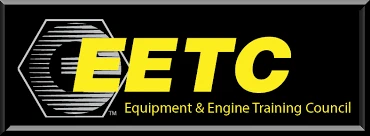
Archive for October 2021If You Drive Like a Maniac (Aggressive Driving is Bad for a Vehicle)Posted October 31, 2021 8:01 AMWhen someone mentions driving like a maniac, they're not talking about you, surely? Besides the safety issues of aggressive driving, you should know that your vehicle will last a lot longer if you'll just mellow out a little. Here are four traits good drivers follow if they want their vehicles to go the extra distance. Cool—The driver who can't wait to get to the next stoplight is just shortening the life of his or her vehicle. Jackrabbit starts and uneven acceleration hurts your engine because the valves and cylinder heads are stressed more. All of those moving parts will wear out faster as well as other components that are connected. That means things like the air conditioner, power steering pump… just about anything that attaches by a belt or a pulley. Oh, and you'll be generating more heat. Heat is one of a vehicle's worst enemies. Warm—If you get in your cold vehicle which has been sitting overnight, start it up and rev the engine high, you've just put a lot of stress on your engine. That's because you didn't let the oil (that's been sitting down in the oil pan at the bottom of the engine) get to the moving parts in order to lubricate them. Some manufacturers advise that you run your vehicle for about 30 seconds before you take off. And if it's really cold out, you may be wise to let the engine run for a minute or two before putting a load on the engine. Also, for the first 5-15 minutes, keep your RPMs on the low side and don't jam on the accelerator. Smooth—You're trying to get somewhere in a hurry and have to jam on the brakes while traveling pretty fast. Just that one time can do more damage to the brakes than you would think. Lots of hard braking can overheat your brakes and damage your rotors, wearing them out way faster than someone who drives with a smoother touch. Hard braking also strains suspension parts, tires and engine mounts. Smart—You know what PRNDL stand for. Those are the letters in your automatic transmission (Park, Reverse, Neutral, Drive, Low). Here are another couple of letters: IQ. A smart shifter never goes into R to D without completely stopping the vehicle, unless, of course, you're anxious to spend some big dollars on your automatic transmission. These days, it's common to get 200,000 miles/320,000 kilometers out of a vehicle, no problem. It just takes regular maintenance (oil changes and regular service) and one other thing. Showing off: showing off a little moderation in driving habits with a big payoff in the end.
Automotive Tips from Steve & Stacy's Servicenter: Alignment InspectionPosted October 24, 2021 7:24 AMUneven tire wear, the car pulling to one side or a steering wheel that is off-center are signs for Charleston drivers that their wheels may be out of alignment. Out with the Old (Vehicle Parts that Wear Out)Posted October 17, 2021 8:12 AMSome drivers don't pay any attention to their vehicles until something breaks. Others take them into their service repair facility for maintenance even before a problem develops. Still, even if you fit into the second group, there are some parts on a vehicle that will simply wear out over time. Your vehicle has gaskets in several places. They use a flexible material to seal the gaps between metal parts that fit together. After time, that material shrinks or gets brittle and fails. Eventually, after time, you will have to get gaskets replaced. Same goes for belts. Your engine has belts that help take the mechanical energy of the engine to drive other parts such as the generator and air conditioner. Heat and age will eventually cause these belts to wear out or break, so you'll need new ones at some point. You'll also find yourself buying brake pads. As much as you may try to go easy on them, brake pads work by wearing off a little bit of them each time they help you stop your vehicle. Do a lot of stop-and-go driving and you'll hasten the process. No battery lasts forever, and your vehicle's battery is no exception. It can only charge and discharge electricity so many times. Count on getting no more than 4 or 5 years out of a battery, fewer if you live in a very hot spot. Other parts that don't age well? Tires. They can have plenty of tread left on them, but rubber gets old and loses its flexibility. Tires have their date of manufacturer stamped on them for a reason. Finally, your muffler is being subject to moisture from inside and out: inside because of moisture-containing exhaust and outside from the elements outdoors. Stainless steel or other alloys will last longer, but after a while, either the moisture or constant pounding from vibrations will take their toll. That's why it's important to maintain every part on your vehicle. You can't wave a magic wand and make everything last forever, but take care of your vehicle and it'll take care of you.
Don't Do It Yourself (Perils of DIY Vehicle Repair)Posted October 10, 2021 11:32 AMYour vehicle is a complicated machine, and yes, it would be nice if you could take care of all of its problems yourself. There was a time when vehicles were simpler and it wasn't too hard for a weekend mechanic to replace brakes, adjust a carburetor or perform a tune-up. But vehicles are far more complicated these days, with traction and stability control, anti-lock brakes, air bags and fuel injection just a small sample of the new technologies. Like a lot of things these days, technology changes in leaps and bounds. Anyone who repairs vehicles has to stay up on the latest computers, sensors, suspensions, steering, electronics, hydraulics and more. Many power steering, braking and heating and air conditioning systems that used to be mechanical are now being replaced by electronic systems. Computers are an integral part of much of the latest automotive technology, something you didn't see a lot of until as recently as the 1990s. Today's most highly-trained technicians are able to keep up with how to perform the latest repairs and service by continuing education about their craft. When once an auto repairman could do fine with a lift and a good set of tools, now specialized electronic analysis equipment and tools are must-haves when it comes to vehicle repair. Because of how fast technology changes, access to the latest repair databases and manuals is also important. Manufacturers require certain service procedures to be performed precisely, and any other way can leave a vehicle compromised when it comes to performance and safety. Your vehicle is capable of traveling at high speeds on challenging surfaces with ever-increasing traffic issues and unpredictable obstacles. You need your vehicle to be working up to its engineered potential. That's why you should leave repairs and service to professionals. They work on vehicles every day, and years of experience with hundreds of repairs equip them to deal with the unexpected as well as the routine. When you develop a trusting relationship with a reputable service facility, you can have confidence that the maintenance, service and repairs are being done by people who know what they're doing. Your safety and your vehicle's performance and reliability are well worth it. Steve & Stacy's Servicenter No Yolk! Rotten Egg Smell (Sulfur Smell Causes)Posted October 3, 2021 11:21 AMThe pungent smell of rotten eggs can send people running for the hills. So when that odor is inside your vehicle, yikes! Yolks! The good news is that a trained service technician can search the source of that smell and stanch the stench… that comes from another words that begins with S. Sulfur. Fuel contains small amounts of hydrogen sulfide, but they're enough to stink up a vehicle when it's not properly burned. You may know that the smell of rotten eggs can often be a sign of a catalytic converter that isn't working the way it should. That could be due to age, damage or an abundance of oil that's clogging it up. If a sensor in charge of managing the fuel has failed, the engine can run with too rich of a fuel mixture. That can overload the catalytic converter and allow some of the byproducts to escape without interruption from the chemical reaction that is supposed to prevent them from going out the tailpipe. There's another possibility, but it's usually only in stick shift vehicles. That's leaking, old transmission fluid. Catalytic converter repairs are best left to a professional. Technicians at your vehicle service facility have equipment and training that can help them pinpoint the cause of this funky fragrance. Once the cause is found, repairs made and/or parts replaced, the smell should go away fairly rapidly. Steve & Stacy's Servicenter | ||
SearchArchiveApril 2016 (16)May 2016 (5) June 2016 (4) July 2016 (5) August 2016 (4) September 2016 (4) October 2016 (5) November 2016 (4) December 2016 (4) January 2017 (5) February 2017 (4) March 2017 (4) April 2017 (3) May 2017 (4) June 2017 (5) July 2017 (5) August 2017 (3) September 2017 (3) October 2017 (5) November 2017 (4) December 2017 (3) January 2018 (5) February 2018 (4) March 2018 (4) April 2018 (5) May 2018 (4) June 2018 (4) July 2018 (5) August 2018 (4) September 2018 (5) October 2018 (4) November 2018 (4) December 2018 (5) January 2019 (5) February 2019 (4) March 2019 (4) April 2019 (4) May 2019 (4) June 2019 (5) July 2019 (4) August 2019 (4) September 2019 (5) October 2019 (4) November 2019 (4) December 2019 (5) January 2020 (5) February 2020 (4) March 2020 (5) April 2020 (4) May 2020 (5) June 2020 (4) July 2020 (4) August 2020 (5) September 2020 (3) October 2020 (4) November 2020 (5) December 2020 (4) January 2021 (6) February 2021 (4) March 2021 (4) April 2021 (4) May 2021 (5) June 2021 (4) July 2021 (4) August 2021 (5) September 2021 (4) October 2021 (5) November 2021 (3) December 2021 (4) January 2022 (6) February 2022 (4) March 2022 (4) April 2022 (4) May 2022 (5) June 2022 (4) July 2022 (5) August 2022 (4) September 2022 (4) October 2022 (5) November 2022 (4) December 2022 (4) January 2023 (5) February 2023 (4) March 2023 (4) April 2023 (5) May 2023 (4) June 2023 (4) July 2023 (5) August 2023 (4) September 2023 (4) October 2023 (5) November 2023 (4) December 2023 (5) January 2024 (5) February 2024 (4) March 2024 (5) April 2024 (4) May 2024 (4) June 2024 (5) July 2024 (4) August 2024 (4) September 2024 (5) October 2024 (4) November 2024 (4) December 2024 (5) January 2025 (4) February 2025 (4) March 2025 (5) April 2025 (4) May 2025 (4) June 2025 (5) | CategoriesMaintenance (8)Service Intervals (2)Service Standards (2)Steering (5)Keys to a long lasting vehicle (2)Air Conditioning (7)Fuel Economy (4)Fuel System (5)Battery (9)Alignment (7)What Customers Should Know (67)Transmission (3)Brakes (14)Dashboard (1)Headlamps (4)Auto Safety (4)Safety (2)Fluids (6)Alternator (5)Oil Change (8)Fuel Saving Tip: Slow Down (2)Tires and Wheels (4)Cooling System (7)Drive Train (4)Winter Prep (2)Inspection (2)Windshield Wipers (2)Check Engine Light (3)Tires (10)Timing Belt (2)Automotive News (1)Exhaust (9)Winter Tires (1)Older Vehicles (1)Water Pump (2)Wheel Bearings (1)Suspension (2)Transfer Case Service (1)Spark Plugs (2)TPMS (3)Shocks & Struts (1)Brake Service (4)Tire Rotation and Balancing (2)Differential Service (1)Serpentine Belt (1)Shocks and Struts (2)Fuel Filter (1)Engine Air Filter (1)Trip Inspection (1) | |
What our clients are saying about us
We have established longterm and stable partnerships with various clients thanks to our excellence in solving their automotive needs!
Awesome staff! They are so kind and helpful and went out of their way to help me out when I was in a pinch nearby.

I am a repeat customer - went to get my oil changed and they reminded me that I was not yet time! I very much appreciate the honesty and looking out for me!





















